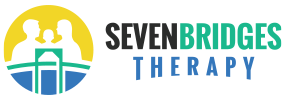Ask Questions:
Asking questions is usually a quick go-to when wanting your child to speak. What's that? Where is it? Do you want it? There are other less demanding ways though to help your child speak more often. If you have a child on the Autism Spectrum, all the more important to use varying techniques to help your child speak more often but more importantly, spontaneously. Some children imitate often or produce what is called echolalia. Our goal though is for our children to speak on their own accord, to be able to come up with the right words to say all by themselves.
Here are some techniques to help your child speak more often working toward spontaneous language use:
Think of it this way. We want to provide as many opportunities as possible for your child to communicate throughout his day.
Ideas to consider:
1-Wake up 5 or 10 minutes earlier each morning so you don’t rush through your daily routine of getting ready for the day.
2-Choices. Instead of picking your child’s clothes out for him, give him choices. Ask him if he wants the green shirt or the blue shirt, the giraffe shirt or the tiger shirt. You’ve given him the words that he needs to produce to let you know what he’d like.
3-Start a sentence and have him finish it. Whoa that’s a big.... that’s a cat and that’s a ... wait expectantly so he knows you’re wanting him to fill in the blank.
4-If your child is on the Autism Spectrum and is echolalic, remember children echo language for various reasons. A couple of things to keep in mind are to model what your child should be saying in any given moment so if he does echo you, he’ll be repeating what he should be saying. Reduce asking questions. We don’t want him to echo questions. We want him to answer questions. Your therapist will work on this specific skill in session and train you how to do so at home. Lastly, put work on pronouns on hold until your therapist feels it’s the right time to address this. It’s very easy for echolalic children to refer to themselves as “you” because that’s the most common way others refer to him. For example he hears others say “you did it”, “do you want some?” etc.
Remember:
Above all don’t forget to have fun every moment you can!
Shannon Kong, MS, CCC
Speech-Language Pathologist
CEO, Clinical Director Seven Bridges Therapy
Cell 925-708-9020
www.sevenbridgestherapy.com




You must be logged in to post a comment.